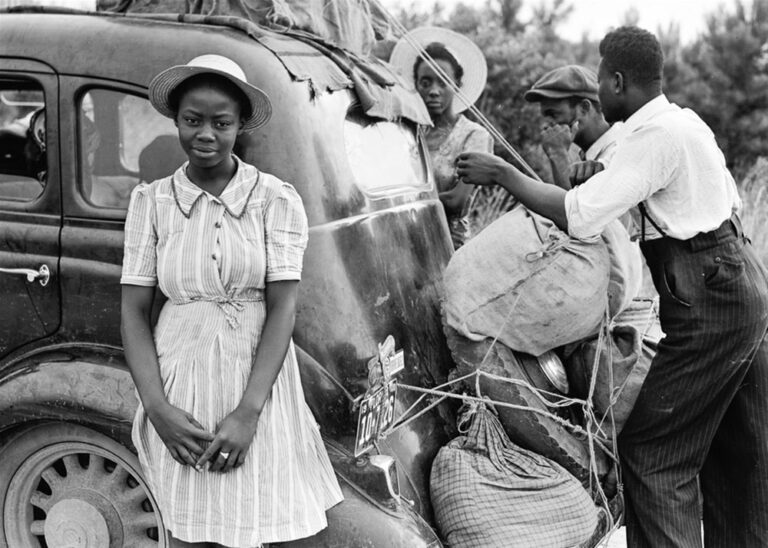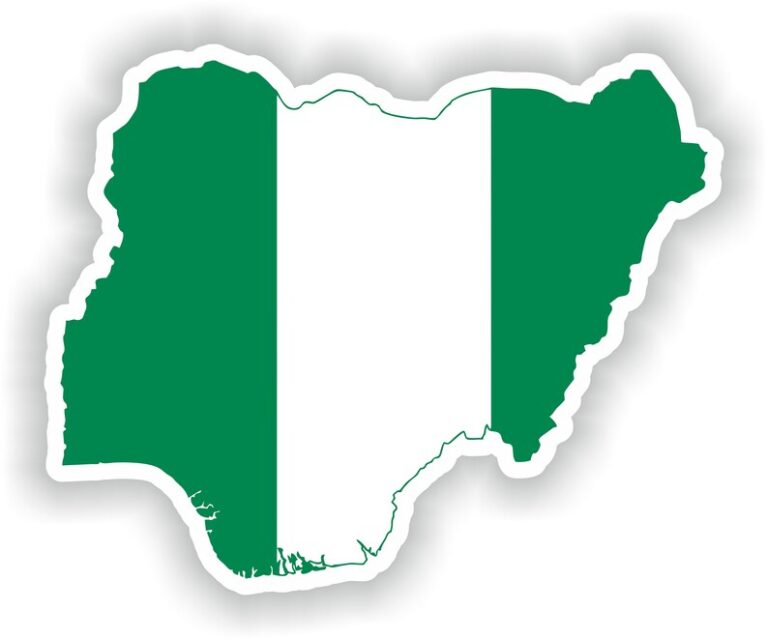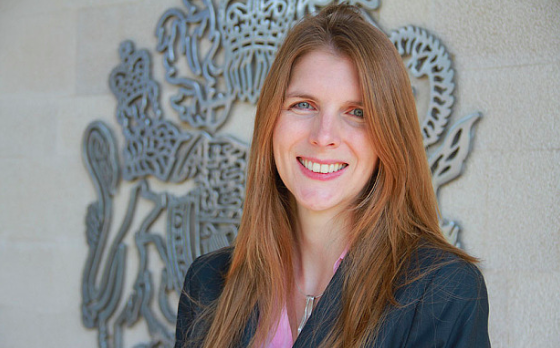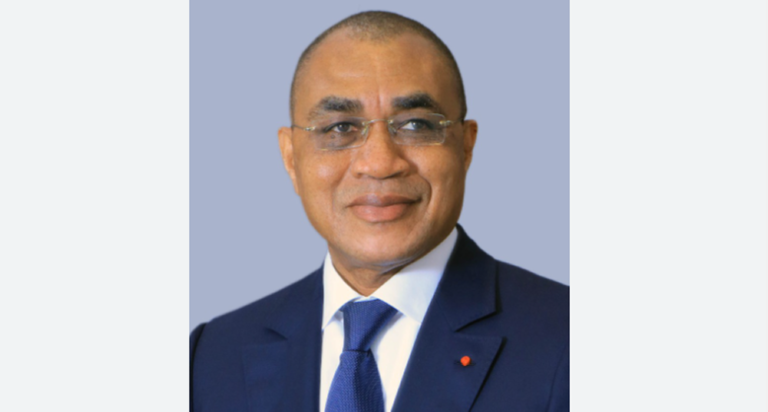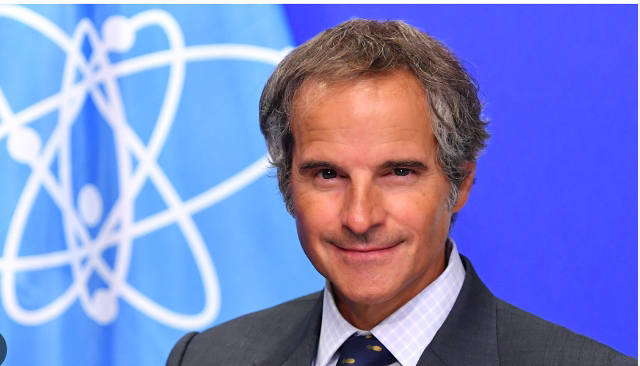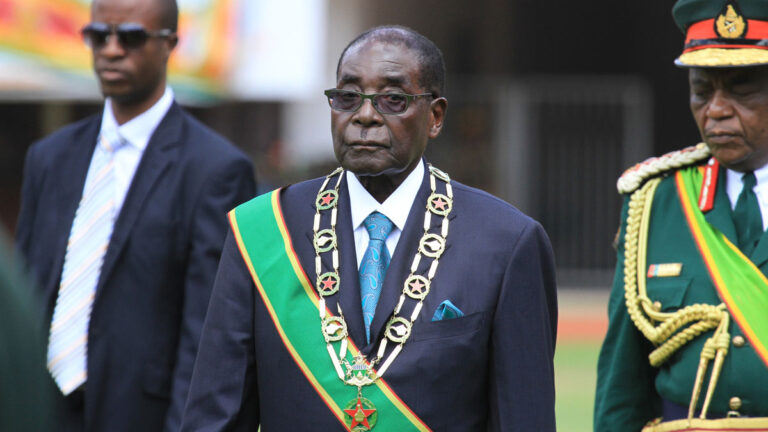
One of the many aims of this writing is to contribute to the difficult task of finding and gathering the missing pieces that completes the jigsaw of African people worldwide. The prime objective being to bring Africans on the mainland back to some unifying form with those scattered in the Diaspora. By any standard such is a challenging task. There also exists a state of induced inertia among African people worldwide against such efforts. The complete cycle is further compounded by the fact that there are thousands of tribes all speaking difference languages on the African Continent. That difficult unifying condition is replicated throughout the African diaspora.
To overcome that fragmentation of African people worldwide, steady minds and broad vision is required from all aspiring leadership. This writing has already exposed the inadequacies of some so\called leaders of African people on the mainland and in the Diasporas. Most of such, came into place to serve the interest of the European countries that place them there. That on-going situation is more to do with the well-oiled machinery that has been long in place to ensure no emergence of good African leadership. Consequently, there has been a long lineage of inept leadership throughout the African Continent since the demise of colonialism. The process to maintained such, has shown a familiar pattern throughout the Continent, wherein most African countries that gained or won their independence post-colonialism, whether through wars or general rebellion, the subsequent leaders are quickly overthrown and replaced by ones more conducive to the interest of their ex-European colonial masters.
If that is not immediately possible, the newly created uncooperative Nation, would be plunged into tribal or civil war. Such would come about primarily because many different European interests are at stake, and all the respective parties would set about creating and arming factions representing their interests. The practice is not exclusive to the African Continent; it is a widespread power game played by the people with the power to do so.
Hence the reason the so-call super-powers are lock in the endless cycle called the arms race, as no Nation wants to be enslaved by another. For those given reasons good leadership is imperative for the survival and progression of any given nation. Unfortunately, most leaders of quality that come to the fore in African countries or the Diasporas are generally subdued, assimilated or eliminated.
But there are some exceptions to that rule, and despite all the efforts by the worldwide mass media to suggest the contrary, Robert Mugabe was a prime example of such. He proved over an extraordinarily long time, under very hostile European-created political and economic environments, that he was made of the material for outstanding leadership. Throughout his long life, he adequately proved that, given the opportunity, Africa can produce outstanding leaders who can shine like a beacon for others, showing them the way forward to African unity and prosperity.
For the benefit of all those who were not aware of the magnanimous nature of his character. Drafted below is a transcript of his 1980 Zimbabwe independent day victory speech. The speech was delivered without any traces of recrimination or retribution. Such would be only possible because of his intelligence and soundness of character, which enabled him to be magnanimous in victory. That was the case despite the long and better struggle he lead the people of Zimbabwe through before attaining their liberation from tenacious Europeans.
It reads as follows;
Greetings in the name of freedom, and May I thank you most heartily for your votes and support? I wish to address tonight the significance of the election victory you awarded my party. I feel overwhelmed. At the same time, I feel humbled. I want to thank all those who contributed to this favourable result by their direct vote as our supporters or by their efficient campaigning as our organizers. In addition, I also thank all officials who participated in the mechanical exercise of handling the elections, without whose organizational and administrative efforts the whole election process would have failed.
Soon, a new government will come into being and lead our country to independence. In constituting this Government, my main concern, and that of my party, is to create an instrument capable of achieving peace and stability as it strives to bring about progress. Peace and stability can only be achieved if all of us, first as individuals and second as part of the Zimbabwean national community, feel a definite sense of individual security on the one hand and have an assurance of national peace and security. It must be realized, however, that in our determination to achieve a state of peace and security, all of us have to be bound by the explicit requirements of harmony contained in the Lancaster House Agreement, which express the general desire of all the people of Zimbabwe.
In that regard, I wish to assure you that there can never be any return to the state of armed conflict that existed before our commitment to peace and the democratic election process under the Lancaster House Agreement. Indeed this is now the time to beat our swords into the ploughshare so we can attend to the problems of developing our economy and society. My party recognizes the fundamental principle that in constituting a government, it is necessary to be guided by the national interest rather than strictly party considerations. Accordingly, I am holding consultations with the other party’s leader, Comrade Joshua Nkomo, so that we can enter into a coalition.
What I envisage, however, is a coalition with the interests of reconciliation can include, by co-option, members of other communities whom the Constitution has denied the right of featuring as our candidates by their being given parliamentary representation. We should certainly work to achieve a national front. Whatever Government I succeed in creating will undoubtedly adhere to the letter and spirit of our Constitution since the Government will itself have been the product of such Constitution; only a government that subjects itself to the rule of law has any moral right to demand its citizen’s obedience to the rule of law.
Our Constitution equally circumscribes the powers of the Government by declaring certain civil rights and freedoms as fundamental. We intend to uphold these fundamental rights and freedoms to the full. Similarly, it is not our intention to interfere with pension rights and other accrued benefits of civil servants.
I may mention here that I have now held discussions with the chiefs of the Joint Operations Commander and the heads of Ministers, and all of them have assured me of their preparedness to work under my Government. I, in turn, have assured them of our concern about their position and the position of the civil servants. We have assured them that it is not the intention of our Government, when it comes into being, to deprive the civil servants of their pension rights and accrued benefits, nor do we want to drive anybody out of this country, nor do we intend to interfere unconstitutionally with the property rights of individuals.
I urge you, whether you are African or European, to join me in a new pledge to forget and forgive our grim past, join hands in new amity, and together as Zimbabweans, trample upon tribalism and regionalism and work hard to reconstruct and rehabilitate our society as we reinvigorate our economic machinery.
The need for peace demands that our forces be integrated as soon as possible so we can emerge with a single national army. Accordingly, I shall authorize General Walls, working in conjunction with the comrades and commanders of the opposing sides, to preside over the integration process. We shall also happily continue to enjoy the assistance of the British military instructors.
Finally, I assure all the people that my Government will strive to bring about meaningful change in their lives. However, everyone should exercise patience, for change cannot occur overnight. Let us be united in our endeavor to lead the country to independence. Let us constitute a oneness derived from our common objectives and total commitment to building a great Zimbabwe that will be the pride of all Africa.
Let us deepen our sense of belonging and engender a common interest that knows no colour or creed. Let us genuinely become Zimbabweans with a single loyalty.
Long live our freedom.
Any impartial reader of this excerpt from my forthcoming book, with the good fortune of coming across the above great speech would be in no doubt that its writer is not of the material that tyrants are made from. The address is an outstanding example of a peace-keeping document. Nonetheless, it is a fact that many African people have absorbed the worldwide propaganda campaign which has worked ceaselessly to bring about the demise of Robert Mugabe and thereby would disagree with the above presentation of him. The crusade to bring about the destruction of Robert Mugabe had been up and running long before he became the president of Zimbabwe.
His European adversaries launched that massive counter Mugabe campaign because it was evident to those concerned that their interest would be at risk under any form of Mugabe leadership. The main protagonists behind the relentless drive to discredit and destroy Mugabe was the British Government with the support of her prodigal Son America and their other European family members. The British Government spearheaded the vicious economic blockade and disinformation campaign against Robert Mugabe and the Zimbabwean people for over 40 years. Notwithstanding, the indelible spirit of the Mugabe leadership and the tenacity of the Zimbabwean people held fast against ex-colonialists begrudging the loss of a valuable land mass.
For those not aware of Robert Mugabe’s magnanimity, the following few pages have been dedicated to some of his outstanding achievements for the people of Zimbabwe and the African Continent as a whole. Commencing with; he spent some time in Ghana during the rise of the great Pan-Africanism movement, where he came under the influence of some of the most progressive and aspiring African leaders of those times. Such would include the likes of Nkrumah of Ghana, Julius Nyerere of Tanzania, Kenyatta of Kenya, and Kwando of Zambia. From there, he emerged in the early 1960s as a schoolteacher of repute, where he applied his profession under the duress of the European repressive Rhodesian regime. That regime imprisoned and tortured him for ten years because he displayed exemplary leadership qualities. During his imprisonment, between being tortured, he somehow manages to increase his already respected portfolio of degrees.
On his release from prison, he wasted no time as he quickly joined his country’s freedom fighters in the jungles and hills of the bordering countries of Zambia and Mozambique. From there, he rose through the ranks to become their commander. In that capacity, he successfully steered the movement to a victory that culminated in him forming the Government of the freed African state named Zimbabwe. To achieve such, he and the men under his command had to take on and tactically defeat the combined army of the Rhodesians and the South African army, which had military backing from Europe and America. He achieved the said by forcing all the said protagonists to sue for peace. This they did through a negotiated settlement under the auspices of Margret Thatcher. At the time, she was the prime minister of the British colonial power over the African country, then called Rhodesia.
Notwithstanding, the British Government and their co-conspirators in America and Europe ran a very active and vicious campaign alleging that the Mugabe Government had committed a massacre in the Zimbabwean City of Bulawayo in the early 1980s. In that regard, the matter, construed as a massacre by the British and their supporting conspirators, amounted to this:
The legitimate Government of the new Zimbabwean Nation took proactive and divisive actions to neutralize counterrevolutionary forces headed by Joshua Nkomo, one of the loser to Mugabe in Zimbabwe’s first democratically held election. As usual, what was about to take place at the time for the then newly independent Nation, was simply this; Just because the man backed by certain European interest groups had lost the independent election; the said parties initiated their plan B, which is usually to plunge the offending country into a civil war. The template for such was already well-rehearsed in the brutal Nigerian Biafra civil war during the 1960s.
The developed versions of that template, was at the time, still up and running in many other African countries, including Mozambique and Angola. Notwithstanding, due to his failed insurrection, Nkomo fled Zimbabwe to one of his backing countries, the British Isles. Upon arriving at the British Airport, he lamented contemptuously to the British media that Mugabe was likened to Hitler. Such is ironic; when it is considered that the 16 President of the United States of America, Abraham Lincoln, went to war to keep his country united he was regarded as a hero, yet when an African president does likewise, he is branded a Hitler.
Nonetheless, in the late 1980s, Harare, the capital city of Zimbabwe, was amongst the fastest-growing cities in the world, and Mugabe was regarded as a pragmatic leader by some of his adversaries. Throughout the 1980s and 90s, the newly independent Zimbabwe Nation experienced growth in such departments as infrastructural, economic, and academics developments, producing teachers, doctors, nurses, and other professionals well beyond the requirements of the Nation needs and Mugabe successfully maintained peace, unity, and prosperity in the country. After Nkomo’s failed insurrection, Mugabe allowed him back into Zimbabwe and worked with him in a Zimbabwe National Unity coalition party, where Nkomo became prime minister and Mugabe the President.
Not prone to selfishness or inclined to rest on his laurels, Mugabe joined the war in Mozambique very soon after his independent victory in Zimbabwe. He did so to assist his comrade in arms, Samora Machel, in the fight to expel the fascist South Africans and Portuguese insurgent troops that continued to ravage that developing country long after its great struggle and victory for its independence.
Once he achieved success there, he turned his attention to the then long-running Angolan civil war, which has been raging similar to Mozambique since the inception of that country’s independence. His intervention in Angola’s Civil war was facilitated by Mugabe being the sitting chair of the S.A.D.C. (Southern Africa Development Counsel). All those African nations highly regarded Mugabe as a revolutionary and a great political leader in Africa.
Mugabe was also a key player in the re-developing of the region’s southern block community, which provided the template of a similar coalition in the Eastern and Western African nations’ blocks. Undoubtedly, the formations of those African blocks are the first tentative steps towards the eventual unification of that great Continent.
As the chair of the Southern block of African Nations, Mugabe endeavoured to broker a negotiated peace settlement between the main protagonists in the costly in-lives and the long-running Civil War in Angola. In that venture, he was a hair’s breadth away from success in bringing peace to that long-suffering Nation. This was the case because the main protagonist arrived at a preliminary agreement for peace. However, under the presidency of George Bush Sr., the American Government frustrated and ultimately foiled all of Mugabe’s efforts to bring about a settlement.
That situation became the case because President Bush Sr. naturally felt that the man America was backing, Savimbi, would eventually take control of Angola, thereby handing that country’s significant oil and diamond reserves to their American backers. Therefore President Bush snr rearmed the U.N.E.T.A. forces where, from that position of military confidence, the American back counterrevolutionary force re-embarked on the continuation and intensification of that brutal civil war.
Notwithstanding, to his credit, Mugabe succeeded indirectly in his endeavors to halt that seemingly endless civil war in Angola. That occurred when he intervened with military force in another proxy war that erupted in the Congo. He did so with the backing of other Southern African countries. South Africa at the time was under the stewardship of Nelson Mandela, who was lobbied to join the coalition forces. But he declined as he was of the same view as his European contemporaries , who was asking for more peace talks, such invariable translated into giving the other side more time to rearm. Mr Mandela must have been aware of what was at stake in the D.R.C., but he pretended he did not get it. That was the case because, when the Southern African coalition forces entered the war in the D.R.C., The Western-backed anti-Government insurgent forces were less than 10 kilometres from the country’s capital Kinshasa.
However, due to Mugabe’s successful intervention in that war, all the so-called Western block governments regarded him as an exponential threat to European interests in Africa. As usual, the U.K. government led the charge in that endeavour as they intensified their anti-Mugabe rhetoric accusing him of illegally evicting European farmers and persecuting a war in the D.R.C. That said, the facts of their baseless allegation are that Tony Blair’s New Labour British government reneged on the terms of the Lancaster-House treaty to compensate those farmers. Therefore, the British Government are fully responsible for the debacle for the Zimbabwe European farmers.
Notwithstanding, it soon became apparent that Mugabe’s decisive and foresighted actions significantly stabilized the war in the D.R.C. and also, by default, ended the nearly 30-year Angolan civil war. This he achieved because, for many years, the country then known as Zaire (now D.R.C.) was serving as a safe haven for the retreating Angola’s counterrevolutionary force U.N.E.T.A. Their collaboration with the French, the long in place puppet leader Abooto and the American agencies guaranteed such sanctuary.
This was the case because once those retreating troops were back in their haven in the country called Zaire, they would be retrained and rearmed by their American backers, thereby facilitating the perpetuation of the dreadful civil war. However, this ended abruptly when the Angolans, the Namibians, and the Zimbabwean army sent troops into the Congo War. As a result, the U.N.E.T.A. rebel forces could not access their usual retrained and rearmed bases in the African country once known as Zaire. Consequently, the long civil war of Angola ended abruptly when the rebel leader Savimbi, was killed by the Angolan army close to the borders of Zambia. Therefore, as a direct result of Mugabe’s visions and strategy, Africa is a much more peaceful place than it has been since the winding down of colonialism.
Before he came to power, over 60%of, the Continent was gripped into some form of civil or tribal war. That figure is now less than 20% and falling in the 2020s. Some of the leading British business magazines, painted, “Mugabe the danger to Africa.” When in reality the statement meant “the danger to Europeans’ interest in Africa. “And they had all rights for so saying because Robert Mugabe has never hidden his campaign in his many battles for the interest of Africa. It is beyond dispute that he has set a high benchmark for good leadership. Therefore, it is only fitting that his high standards should be a reference point for those who follow or preceded him. Therefore, all aspiring leaders in Africa and those already in leadership should expect critical scrutiny as they endeavor to gather the scattered people on the African Continent and those in the Diaspora with the hope of putting them together again.
By Rylan Fletcher, Associate editor, Africa Bulletin and Africa Analyst.
The article is chapter twenty three from his soon to be published book entitled: Exposed: The Black White Factor
Author’s Afterword
The main source for this writing, are many of my retained memories from some of the
numerous events I have experience since the beginning of my conscious life in 1954, to
2024, the time of this book’s publication. However, as a cautionary note, the contents
herein are not recommended for those of a fragile ideological disposition. That would
also be the case if your thoughts are inhibited by religion or similar forms of mind-
restricting agents. Should any of the said be the case and you have chosen to read on,
then please be guided that; you are about to embark on a reading excursion that has
taken the route of brutal truth on its journey to reality.

